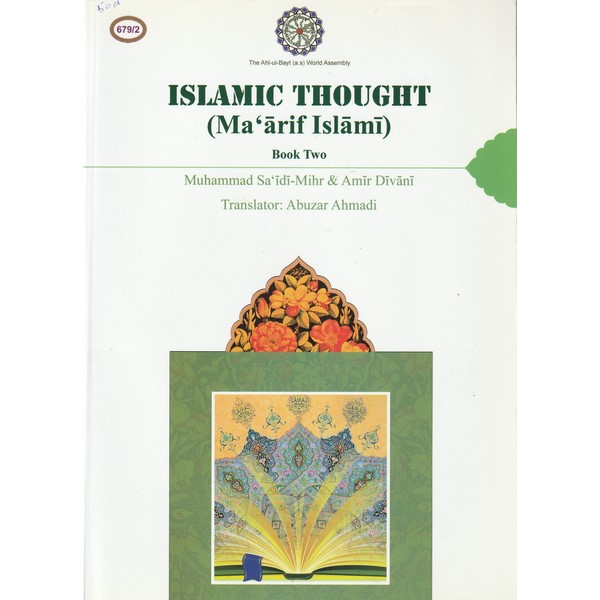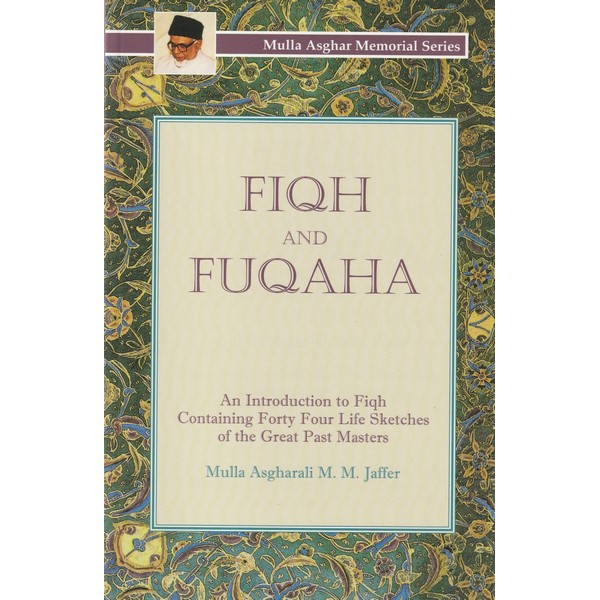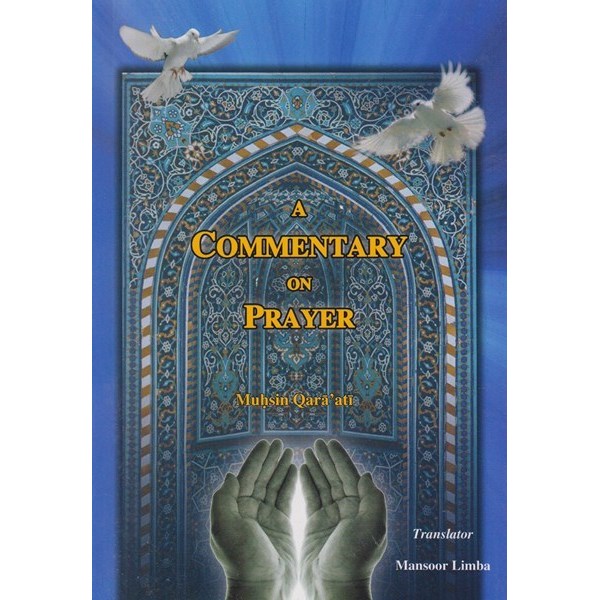| Content | The first volume, entitled “Islamic Thought: Book One”, consists of topics concerning God, humanity, the world, and the afterworld. The second collection, entitled “Islamic Thought: Book Two”, is comprised of the subjects of prophethood [nubuwah], Imamate, religious authority [marja’īah], and religious vicegerency [wilāyah]. The proportions of these books have been adapted to two study units each.
The structure of the introduction has been adapted to conform to the curriculum suggested by the Administration. This modified chapter has been named “Religion in the Modern World” which investigates the crises of modern humanity and related causes and factors and explains the function of religion in resolving these crises.
In the discussion concerning theology, while elucidating the methods of realizing God, the “Kalām Cosmological Argument” has been discussed in detail in the section entitled “The Way of Intellect”.
The policy of the Administration regarding introduction of contemporary Kalām discussions into the book was to do so gradually while simultaneously observing the necessary symmetry of the topics. Therefore, issues such as religious experience, benefits of religion, science and religion, and polytheism [kithrat girā’ī] have been introduced and existing materials have been enhanced in the second edition.
In this edition, the discussions concerning eschatology [ma’ād] and Imamate have been revised and the discussions on Imamate have been broadened. Additionally, discussions on religious authority [marja’īah] and religious vicegerency [wilāyah] have been revised in order to increase content accuracy and adjust the volume of this discussion. Furthermore, we have endeavored to answer all questions concerning these topics.
HEAVILY SUBSIDIZED BY WWW.ISLAMICTHOUGHT.CO.UK |
If we study the subjects of FIQH in detail, we find that every one of them is peculiar and singular in itself. Some of the laws relate to the natural urge in human beings to adore and worship. It guides us to worship none but Allah, in the prescribed form, seeking His pleasure. Then there are laws which prompt us to serve, be helpful and useful to human society, at the same time affirming our obedience to Allah. These are Zakat, Khums, our social and political duties, Jihad, Amr bil Ma'roof and Nahy anil Munkar, training in martial arts etc. Also covering brief history of over 40 Mujtahids.
HEAVILY SUBSIDIZED BY IEB OF WORLD FEDERATION.
| This text explains in detail the meaning of Worship and Intention, as well as how different stages of worship are acquired. He then goes on to explain the different actions of Prayer in detail, such as the first Takbir, & the recitation of the Suras
Heavily subsidized by www.islamicthought.co.uk | This book is based on Majlis-e-Ulama Shia folder for class 3. Any Madressa using this folder will be able to do wordsearches on following topics. (1) Names page 7 (2) History page 9 (3) Imam Zainul Abideen (as) pages 10-11. (4) Imam Baqir (as) page 14 (5) History pages 15-16 (6) Imam Sadiq (as) page 19 (7) Imam Sadiq (as) page 20 (8) Imam Kadhim pages 23-24-25 (9) ImamRidha (as) pages 28-30 (10) Imam Taqi (as) pages 33-34 (11) Imam Naqi (as) 37-38 (12) Imam Askari (as) pages 41-44 (13) Imam Mahdi (as) pages 47-49 (14) cities in saudi Arabia pages 52- 54 (15) Cities in Iraq pages55-58 (16) Baytul Muqqaddas pages 59-60 (17) Cities in Syria pages 61-65 (18) Raas pages 68-69 (19) Imam Hussain pages 72-90.
This book can be easily be photo copied and can be used as handouts for anyone using Majlis-e-Ulama syllabus class 3 History. Ideal for teachers and parents to use for children
HEAVILY SUBSIDIZED BY WWW.ISLAMICTHOUGHT.CO.UK
| The book, which requires brevity and concentration, is regarded as one of the best that deals with applied ethics. It is a guide for spiritual wayfarers on ethics and ways to strengthen one's faith, with the goal to reach Allah (swt). | This text offers a concise introduction to the author of Nahjul Balagha, to help aid the reader to better experience and understand the great Book itself. With carefully selected passages, self-introductory sermons by Imam ‘Ali (‘a), and free-style poems, the reader can gain a beautiful insight into the eloquence behind the thoughts and thinking of ‘Ali Ibn Abu Talib (‘a), as well as an introduction to the Imam himself.
Subsidized by IEB of www.world-federation.org |











Reviews
There are no reviews yet.